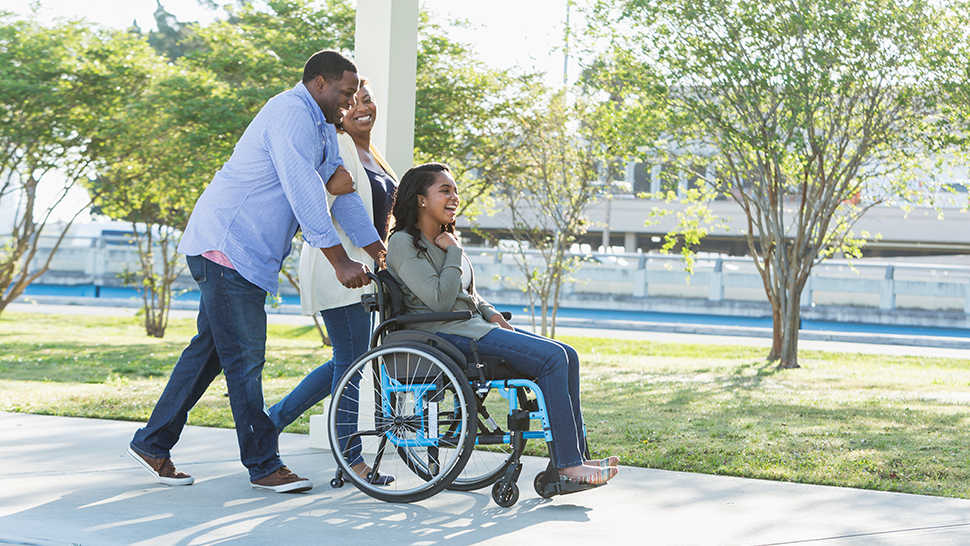We've been hearing more and more about how important sleep is to many aspects of our health. Earlier this year, we learned that research subjects who typically slept less than seven hours a night and then added an hour more each night ended up eating, on average, 270 fewer calories per day compared to their tuckered-out peers who didn't get extra sleep. The impact of scoring enough sleep goes far beyond what's on your plate, however.
According to a new study published April 28 in the journal Nature Aging, adults who sleep for about seven hours per night tend to have better cognitive performance and mental health as they age.
Read on to learn more about why seven hours of shut-eye is the sweet spot, what can happen if you regularly rack up more or fewer hours than that, then get the dish on the foods that can help support better sleep.
What this sleep research found
To land at this finding, scientists from the UK and China dove into data from about 40,000 adults between ages 38 and 73 in UK Biobank. In particular, they looked at the reports about sleep habits, mental well-being, cognitive testing, brain imaging and genetics.
They found that both too much and too little sleep can:
- Impact cognitive tasks like processing speed, memory, problem-solving abilities and attention.
- Make symptoms of depression and anxiety more likely.
- Relate to overall lower well-being scores.
About 35% of American adults currently average less than seven hours per night, according to the Centers for Disease Control and Prevention — that's more than one-third of us who aren't doing our brains any favours, this research suggests.
That's because after hitting the six-hour mark, the brain starts to "cement" what we learned since our last sleep and is able to flush out waste by-products, including beta amyloids and tau protein. If these toxic metabolites are allowed to build up inside the brain, they can potentially increase risk for dementia and Alzheimer's disease.
And if you think you can "bank" your sleep from those naps on the weekend to cover your five-hour nights during a busy week, think again: consistency is key. A large fluctuation in sleep duration has been associated with increased chronic inflammation and higher risk for certain aging-related diseases, the researchers confirm.
"While we can't say conclusively that too little or too much sleep causes cognitive problems, our analysis looking at individuals over a longer period of time appears to support this idea. But the reasons why older people have poorer sleep appear to be complex, influenced by a combination of our genetic makeup and the structure of our brains," Jianfeng Feng, a study co-author, professor and Dean of the Institute of Science and Technology for Brain-Inspired Intelligence at Fudan University in China tells University of Cambridge News.
This is particularly important as we grow older, adds Barbara Sahakian, another co-author and professor of psychiatry at the University of Cambridge.
"Getting a good night's sleep is important at all stages of life, but particularly as we age. Finding ways to improve sleep for older people could be crucial to helping them maintain good mental health and well-being and avoiding cognitive decline, particularly for patients with psychiatric disorders and dementia," Sahakian adds to University of Cambridge News.
10 of the best foods for sleep
If you want to support your body on its mission to inch closer to that seven-hour mark (or keep up the solid snoozing, if you're lucky enough to already be there), add these research-backed best foods for sleep to your menu, according to the Sleep Foundation and the American Sleep Association:
- Tart cherries or tart cherry juice
- Kiwi
- Fatty fish
- Nuts
- Rice
- Eggs
- Chicken or turkey
- Yogurt
- Kale
- Whole grains
The bottom line
Somewhere right around seven hours of sleep appears to be most beneficial for the brain, but anywhere between seven and eight hours is a good goal for health and longevity, research suggests.
Eating a well-balanced diet that includes sleep-supporting foods can make it easier to get your recommended daily snooze time. It's not just about what you eat, however. Your sleep environment, bedtime routine and so much more can help or harm the quality of your sleep.
This article was written by Karla Walsh from EatingWell and was legally licensed through the Industry Dive Content Marketplace. Please direct all licensing questions to legal@industrydive.com.








